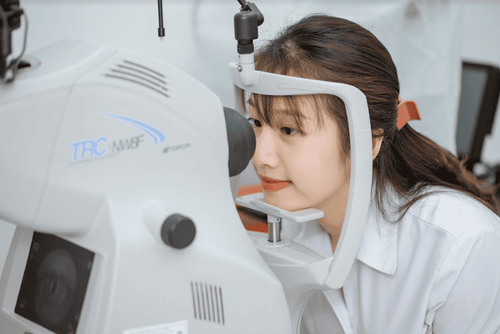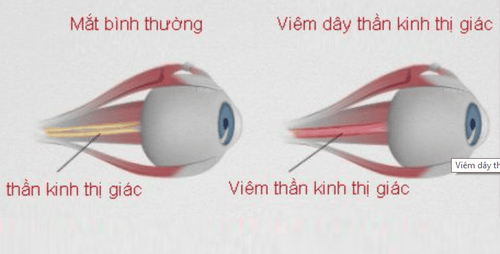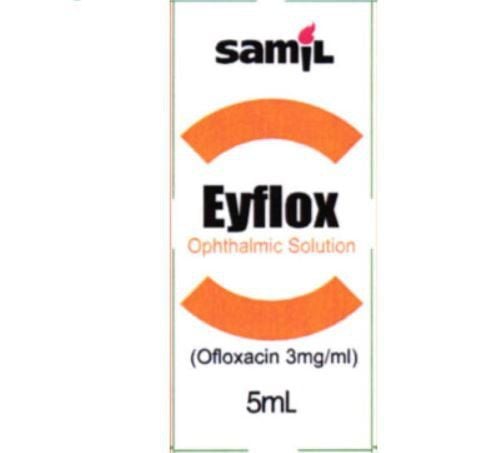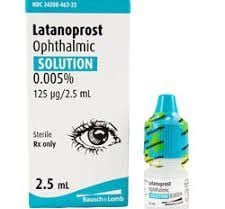This is an automatically translated article.
This article is expertly consulted by Master, Doctor Bui Ngoc Phuong Hoa - General Internal Medicine - Department of Medical Examination & Internal Medicine - Vinmec Danang International General Hospital.Optic neuritis is inflammation that occurs in the nerve responsible for visual function, causing pain when moving the eyeball, vision loss or even permanent blindness. Diagnosis and treatment should be carried out as soon as possible at the first signs, helping to prevent disease progression and limit sequelae.
1. How is optic neuritis diagnosed?
Normal optic neuritis will be diagnosed by a physician based on an acute history of eye pain, blurred vision, and decreased visual acuity and by performing the following specialized examinations:1.1. Vision exam Your doctor will evaluate your vision as well as your ability to perceive colors. If visual acuity decreases rapidly in one eye in a short time without any abnormalities in the anatomical-physiological structure of the ocular components, optic nerve damage should be considered. Besides, measuring the field of vision is also necessary, contributing to the assessment of disease progression.
1.2. Ophthalmoscopy In this procedure, your doctor uses a special lamp, which shines light into your eye through your pupil (pupil) to examine all of the structures behind it. The most important part of ophthalmoscopy is the evaluation of the optic disc, where the optic nerve enters the retina. The optic disc is red, swollen, and edematous, occurring in about one-third of patients with optic neuritis.
1.3. Pupil light reflex The doctor uses a flashlight to shine a light parallel to the pupil to see how the pupil reacts when stimulated by light. In a normal person, the pupil will immediately shrink when exposed to sudden light or in a bright light environment. However, in patients with optic neuritis, due to the reduced ability to perceive light, the pupillary light reflex is worse, with the manifestation of the pupil being neither small nor slow.
Tests to support the diagnosis of optic neuritis may be ordered, including:
1.4. Magnetic resonance imaging (MRI) The mechanism is to use magnetic fields and pulses of radio wave energy to create images of structures inside the body. The advantage of magnetic resonance imaging (MRI) is that it gives clear, highly sensitive images of soft tissue lesions, especially those in the nervous system. When you have an MRI scan to confirm optic neuritis, you may need an injection of a contrast solution to help clear images of your optic nerve and other parts of your brain. than.
In addition, the role of MRI also lies in determining whether there are other lesions occurring in the brain parenchyma as well as other cranial nerve pairs, because there is a cause of neuritis. The optic nerve is caused by multiple sclerosis. At the same time, MRI can also help rule out other causes of vision loss, such as possible tumors or abscesses in the brain that are compressing the optic nerve or the occipital lobe of the brain.

1.6. Monitoring Progress Since optic neuritis is an acute illness, its diagnosis may sometimes need to be confirmed by follow-up visits two to four weeks after the onset of the first symptoms. If vision loss not only does not improve but also worsens, it is advisable to actively seek other causes.
2. How to treat optic neuritis
In the majority of cases, acute optic neuritis is self-limited. However, steroids are sometimes used to control excessive inflammation that causes severe damage to the optic nerve. Steroid therapy, usually administered intravenously, especially in the acute phase, significantly accelerates vision recovery. At the same time, steroid treatment also helps reduce the risk of multiple sclerosis flare-ups or slow the progression of its lesions. Possible side effects of steroid treatment include weight gain, mood swings, flushing, stomach upset, and sleep disturbances.When steroid therapy fails, and the patient has severe vision loss, another treatment option, plasma exchange therapy, should be considered. By filtering plasma containing inflammatory chemicals, autoantibodies out and reconstituting with a solution of albumin or fresh plasma, a partial restoration of vision was also observed. found in many centers that are fully and ready with the necessary facilities.

3. Prognosis of optic neuritis
Most patients regain near-normal vision within 12 months of optic neuritis.In people with recurrent optic neuritis, the possibility of multiple sclerosis should be considered. If so, the treatment will become more difficult, the prognosis is severe, the risk of permanent vision loss is very high. Not only that, other organs belonging to the nervous system are also damaged, causing the patient to gradually lose the ability to carry out normal daily activities, as well as reduce the quality of life.
Finally, although optic neuritis is an acute and self-healing disease, it is still necessary to actively examine and treat early when there are suspicious symptoms, to ensure a healthy eye for yourself and your loved ones.
Vinmec International General Hospital gathers a team of well-trained and experienced neurologists in the treatment of central nervous system and peripheral nervous system diseases, including optic neuritis. The medical equipment system at Vinmec is modern, meeting international standards, providing maximum support for diagnosis and treatment.
Master. Doctor Bui Ngoc Phuong Hoa has more than 24 years of experience in the field of neuropsychology. Doctor Hoa was formerly the Deputy Head of the Department of Neurology - Quang Ngai Provincial General Hospital and participated in many continuous training courses on Epilepsy, Cerebrovascular Accident, Alzheimer's, Movement Disorders, Geriatrics. Endocrine Pathology.
Please dial HOTLINE for more information or register for an appointment HERE. Download MyVinmec app to make appointments faster and to manage your bookings easily.
Reference source: mayoclinic.org; healthline.com













